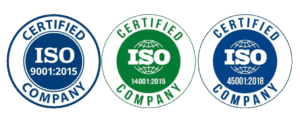Summary:
For Australian exporters, sustainable packaging has moved from optional to essential. New global regulations, consumer expectations, and environmental targets are driving businesses to adopt recyclable, reusable, and eco-friendly packaging solutions.
What’s New
Key drivers making sustainable packaging mandatory for exporters include:
- Global regulations: Countries increasingly require recyclable or compostable packaging for imports.
- Consumer demand: Eco-conscious buyers prefer environmentally responsible products.
- Circular economy alignment: Packaging must comply with international sustainability standards.
- Brand competitiveness: Exporters using sustainable packaging gain market credibility and differentiation.
These trends affect sectors such as food, beverage, cosmetics, and consumer goods.
Why It Matters
Sustainable packaging impacts exporters in multiple ways:
- Regulatory compliance: Avoids import restrictions and penalties.
- Environmental responsibility: Reduces carbon footprint and supports global sustainability efforts.
- Market access: Enables entry into environmentally conscious international markets.
- Reputation and brand loyalty: Strengthens trust with overseas clients and consumers.
Ignoring sustainability requirements can limit market opportunities and damage brand credibility.
Carewell’s Insight
Carewell helps exporters implement sustainable packaging solutions that meet international standards:
- Recyclable, compostable, and reusable packaging materials
- Consultation on packaging redesign for export compliance
- Support for circular economy practices and reporting
Explore our eco-friendly packaging solutions to ensure your exports are compliant, sustainable, and competitive.
Looking Ahead
By 2025, sustainable packaging will be a core requirement for Australian exporters. Companies adopting eco-friendly, circular economy–aligned packaging today will secure compliance, enhance brand reputation, and remain competitive in global markets.
External Reference Links:









